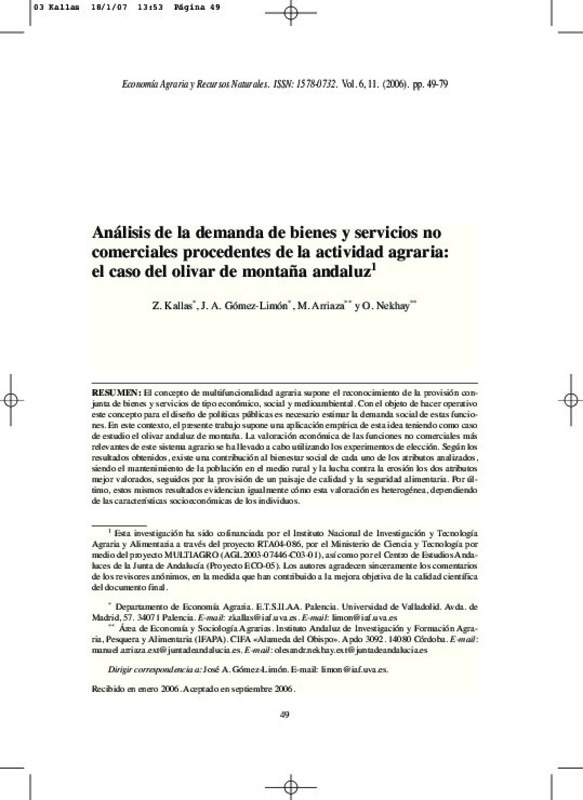JavaScript is disabled for your browser. Some features of this site may not work without it.
Buscar en RiuNet
Listar
Mi cuenta
Estadísticas
Ayuda RiuNet
Admin. UPV
Demand for non-commodities outputs from agricultural activities: The case of mountain olive groves
Mostrar el registro completo del ítem
Kallas, Z.; Gómez-Limón, J.; Arriaza, M.; Nekhay, O. (2006). Demand for non-commodities outputs from agricultural activities: The case of mountain olive groves. Economía Agraria y Recursos Naturales - Agricultural and Resource Economics. 6(11):49-79. https://doi.org/10.7201/earn.2006.11.03
Por favor, use este identificador para citar o enlazar este ítem: http://hdl.handle.net/10251/110852
Ficheros en el ítem
Metadatos del ítem
| Título: | Demand for non-commodities outputs from agricultural activities: The case of mountain olive groves | |
| Otro titulo: |
|
|
| Autor: | Kallas, Z. Gómez-Limón, J.A. Arriaza, M. Nekhay, O. | |
| Fecha difusión: |
|
|
| Resumen: |
[EN] Agricultural multifunctionality is the recognition of the joint exercise of economic, environmental and social functions by this sector. In order to make this concept operative for the design of public policies, it ...[+]
[ES] El concepto de multifuncionalidad agraria supone el reconocimiento de la provisión conjunta de bienes y servicios de tipo económico, social y medioambiental. Con el objeto de hacer operativo este concepto para el ...[+]
|
|
| Palabras clave: |
|
|
| Derechos de uso: | Reserva de todos los derechos | |
| Fuente: |
|
|
| DOI: |
|
|
| Editorial: |
|
|
| Versión del editor: | https://doi.org/10.7201/earn.2006.11.03 | |
| Tipo: |
|








